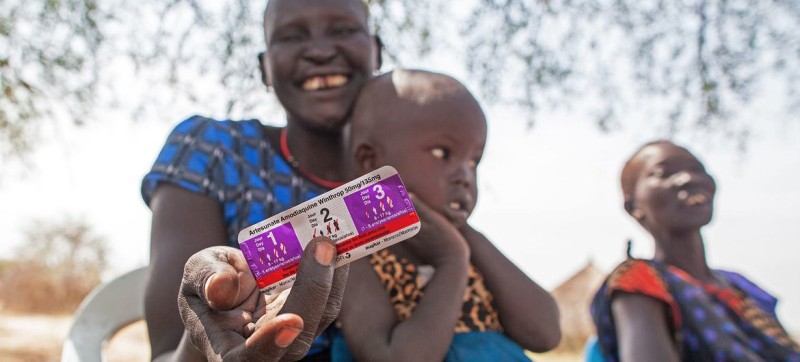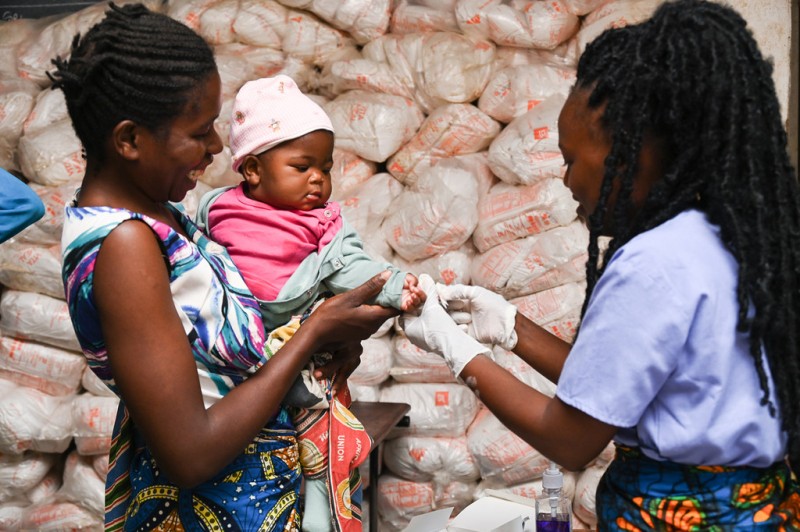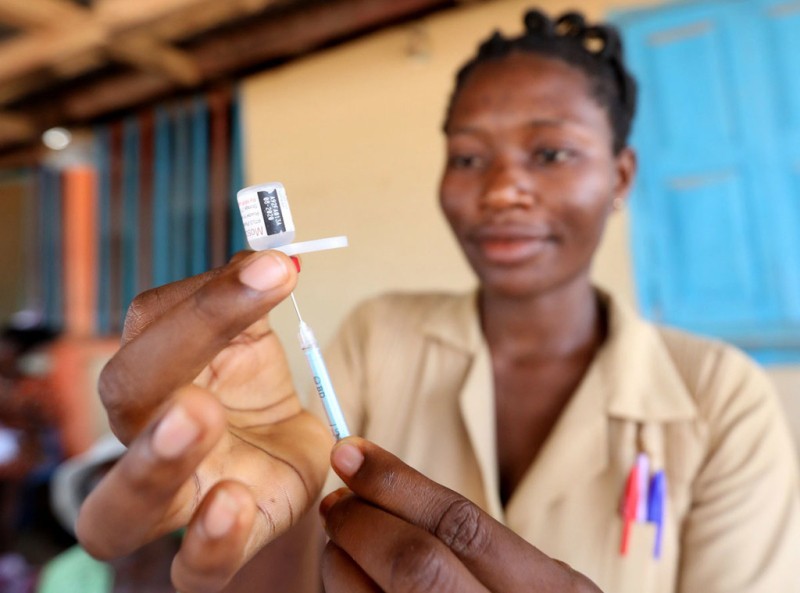
© UNICEF/Mark Naftalin A woman receives medication to treat her four-year-old daughter who is suffereing from malaria in Jonglei state, South Sudan.
“We have the tools to drive down malaria, a package of interventions that includes vector control, preventive medicines, testing, and treatment,” said Tedros Adhanom Ghebreyesus, Director-General of the World Health Organization (WHO).
Tweet URL
Adopting as its theme for the day – “Time to deliver zero malaria: invest, innovate, implement” – WHO’s call to action encompasses preventing, diagnosing, and treating malaria, particularly among marginalized populations.
New vaccine pilots
According to the latest WHO World Malaria Report, published in December, there were an estimated 247 million new cases of malaria in 2021.
Nearly 1.5 million children at high risk of illness and death from malaria in Ghana, Kenya and Malawi, have now received their first dose of the first ever malaria vaccine as part of an ongoing WHO-coordinated pilot programme, the UN health agency reported.
The WHO African region accounted for an estimated 95 per cent of all cases and 96 per cent of all deaths in 2021, the agency said. In the region, nearly 80 per cent of malaria deaths were among children under the age of five.
Already saving lives
Launched in 2019, the malaria vaccine pilots are increasing equity in access to prevention tools for the most vulnerable. WHO said they are already saving lives.
If implemented broadly, the UN health agency estimates that every year, the vaccines could save tens of thousands of lives.
“These are joined by a safe and effective malaria vaccine, which could save the lives of tens of thousands children every year,” the UN health agency chief said. “With sustained investment and scaled-up efforts to reach those most at risk, malaria elimination in many countries is in reach.”
Innovative tools
Countries have made some progress in expanding access to malaria services for most-at-risk populations. Despite some progress, many people at high risk of malaria still lack access to services that can prevent, detect, and treat the disease, most commonly spread by mosquito bites.
Challenges in expanding access to malaria services have been compounded, particularly in sub-Saharan Africa, by the COVID-19 pandemic, converging humanitarian crises, restricted funding, weak surveillance systems, and declines in the effectiveness of core malaria-fighting tools, the agency said.
To address these threats and support countries in building more resilient malaria programmes, WHO recently published a series of new tools: a strategy to contain antimalarial drug resistance in Africa; and a framework, developed jointly by WHO and UN-Habitat, to guide city leaders in urban malaria control.

© UNICEF/Thoko Chikondi A six-month-old baby is tested for malaria after Cyclone Freddy caused floods and devastation in Malawi.
Prospects for new interventions
Continued investment in the development and deployment of new vaccines and next-generation tools will be key to achieving the 2030 global malaria targets, WHO said.
A second malaria vaccine, if approved, could help close the sizable gap between supply and demand and further reduce child illness and death from malaria, the agency said.
Meanwhile, 28 new products in the research and development pipeline include such innovative tools as new types of insecticide-treated nets, targeted baits that attract mosquitoes, and genetic engineering of mosquitoes.

WHO A health worker holds a malaria vaccine syringe in Ghana during a mass vaccination campaign. (file)

